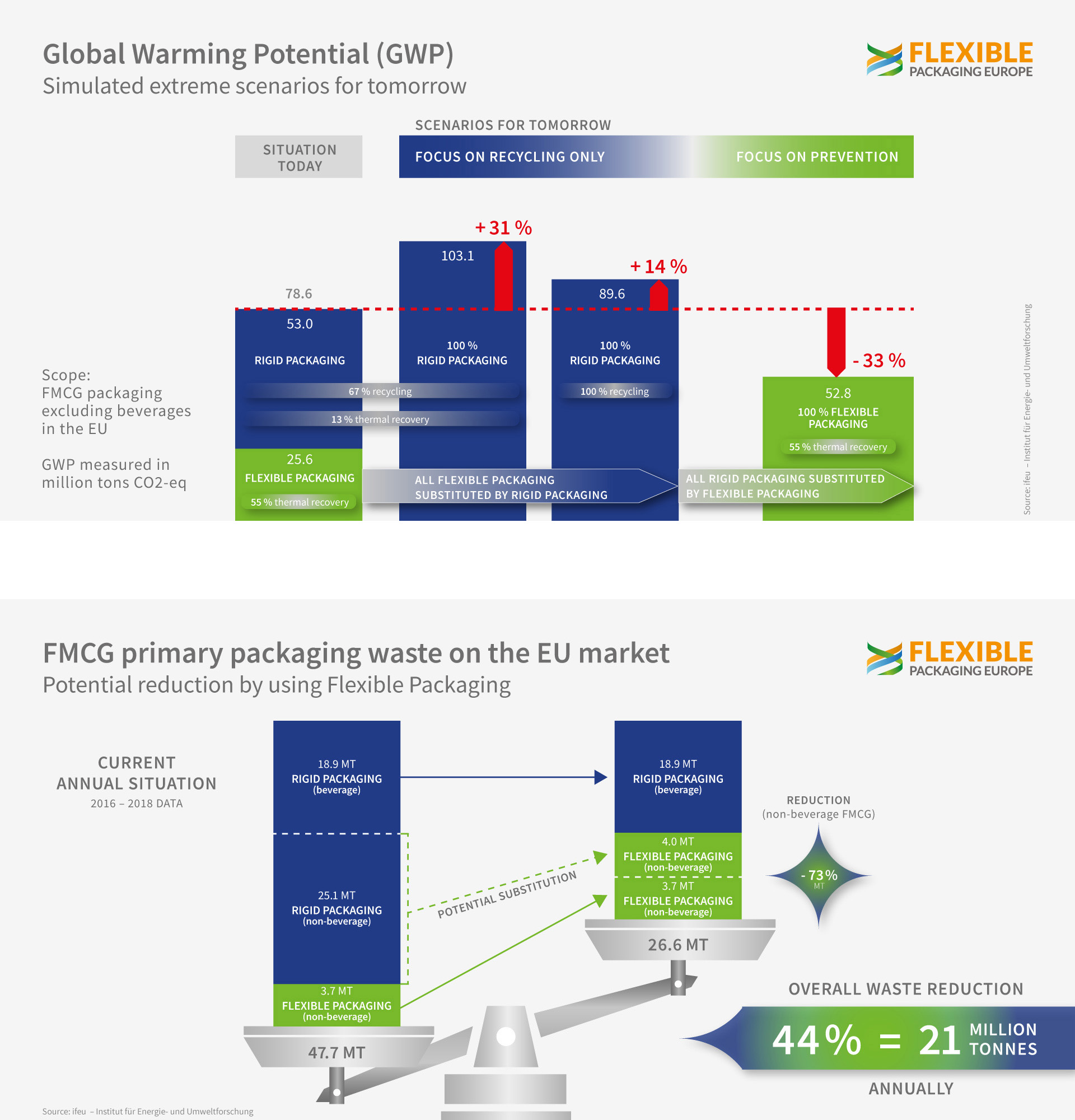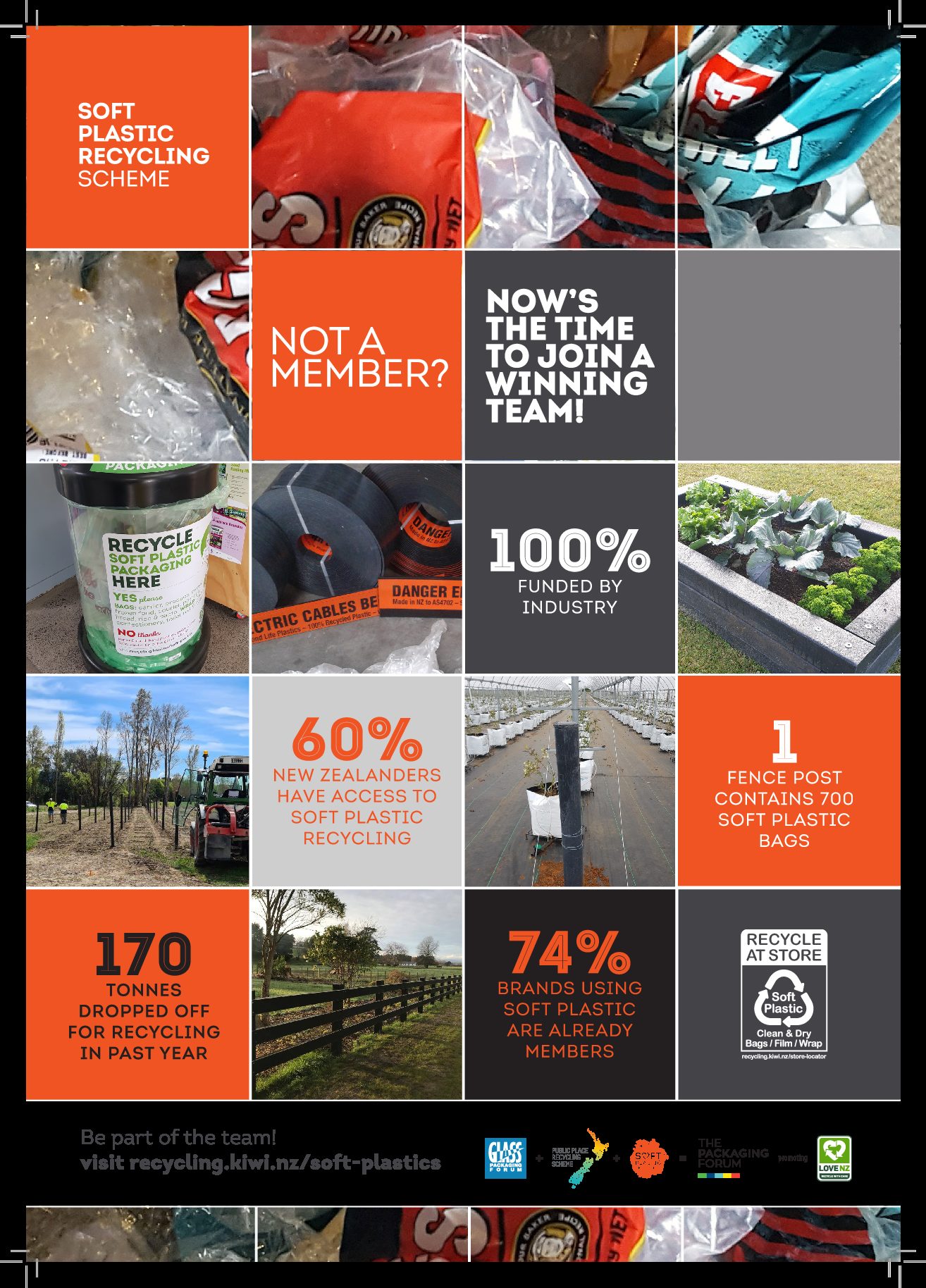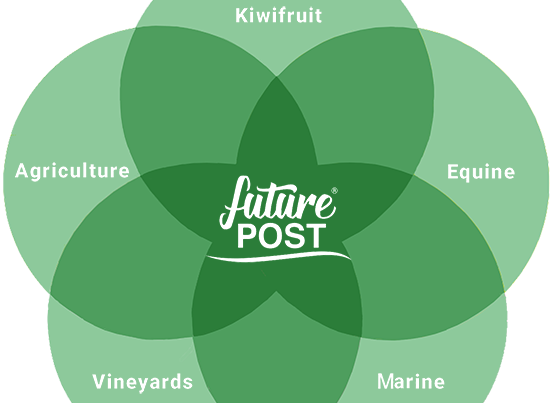
Flexible Packaging Europe (FPE) recently commissioned the extended study by the Institute of Energy and Environmental Research (IFEU) on its comparison of resource efficiency between flexible and rigid packaging. The study shows that using flexible packaging as a primary source of packaging for Fast Moving Consumer Goods (FMCG) is far more beneficial for reducing one’s carbon footprint.
The focus of the extended study used a scenario where all rigid packaging for FMCG excluding beverages was replaced with flexible packaging options where feasible. By making this substitution, the results showed that packaging waste in the EU has the potential to be reduced by up to 21 million tonnes per year. With this translating to a 70% reduction, it suggests that the substitution and switch to flexible packaging is a fundamental step in the prevention of primary packaging waste.
The switch from rigid to flexible packaging is proven to also have a positive impact on our environment. Even if it were assumed that the recycling of these products was nil, there would still be a 33% decrease in Global Warming Potential (GWP) for all European FMCG with the exclusion of beverages.
To enhance its findings, the study by IFEU also looks at the results of the contrary. By substituting all flexible packaging with rigid, it showed an increase in GWP of 30% even factoring in the higher rate of actual recycling for rigid materials. Through assumption of a complete 100% recycling scheme, this would only reduce from 30% to 14% highlighting the need for more widely used flexible materials as a step towards prevention rather than needing to find an end solution for packaging waste.
Shop our variety of flexible options here and please get in touch should you have any questions about our flexible packaging options.





